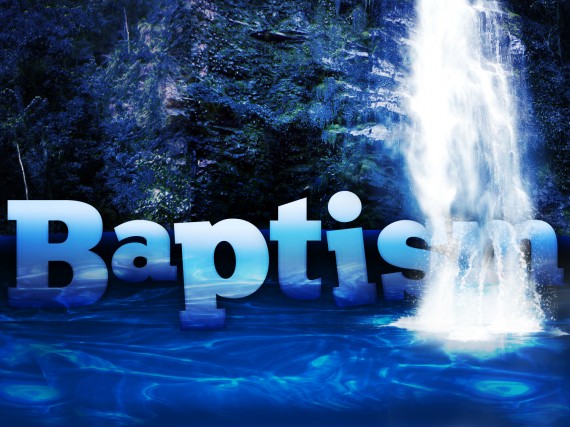This is a guest post by Sam from GraceGround.com. He writes about revealing Jesus to others in our neighborhood and community through tangible acts of love and service. Some of his more popular blog series include Getting to Know Your Neighbors and Being the Church in the Community. In the post below, he writes a follow-up post to my series on the Lord’s Supper about how he observes the Lord’s Supper in his community.
If you would like to write a guest post for this blog, check out the guidelines here.
While in no way wishing to suggest that anyone should not “celebrate” the Lord’s Supper with a bit of bread or cracker and a few drops of juice or wine, as seems to be the common practice in many churches, may I share some of the ways we choose to celebrate and remember our Lord with food and drink?
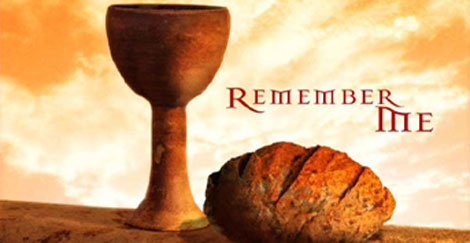
Some of this can be found in the two series I wrote on Graceground on ” Getting to Know Our Neighbors” and “Being the Church in the Community“, while some of it is not mentioned there.
Gathering with Believers
Sometimes we gather together with other believers in a cafe in an inner city neighborhood to be present in the neighborhood, to patronize the struggling cafe owner and to eat together, catch up with each other, discuss the Bible and pray. On some of those occasions, we share a piece of unleavened middle-Eastern style flat bread and think of Jesus’ love for us and the people around us in the cafe and in the neighborhood.
On other occasions, we load up the car with coats, sweatshirts, tarps, bottled water and small bags of potato chips and head to the haunts of the homeless. In warm weather, water and potato chips and “would you like a pair of clean socks to go with that?” seems about right.


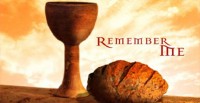



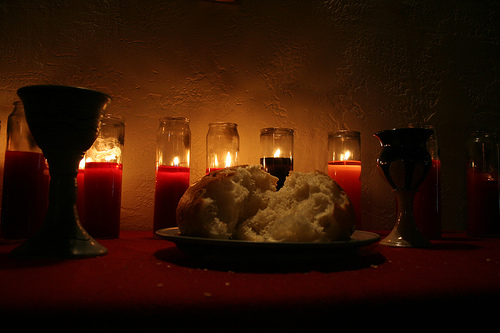
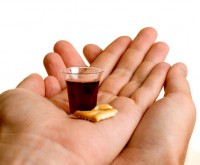

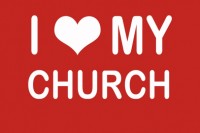
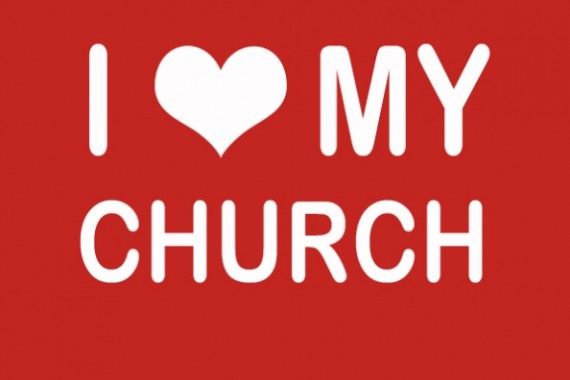
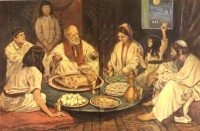
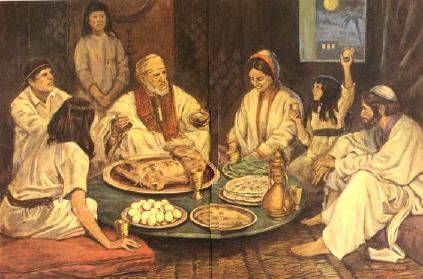
 After the church became the official religion of the Roman Empire, the church leaders had time to develop approved theology and doctrine. Among the things that were debated were the ways that the grace of God was distributed to believers. They came up with numerous ways, all of which required the involvement of the priestly class. Very frequently, the priests said special prayers or required people to say special words when undergoing these sacred rituals, so that over time, people began to think that there was actual power in these rituals, so that the way they were done did not matter as much as simply doing them.
After the church became the official religion of the Roman Empire, the church leaders had time to develop approved theology and doctrine. Among the things that were debated were the ways that the grace of God was distributed to believers. They came up with numerous ways, all of which required the involvement of the priestly class. Very frequently, the priests said special prayers or required people to say special words when undergoing these sacred rituals, so that over time, people began to think that there was actual power in these rituals, so that the way they were done did not matter as much as simply doing them.

